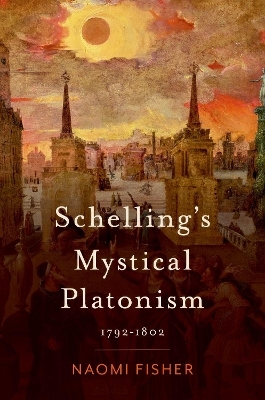
Schelling's Mystical Platonism
Oxford University Press Inc (Verlag)
978-0-19-775288-3 (ISBN)
- Lieferbar (Termin unbekannt)
- Versandkostenfrei innerhalb Deutschlands
- Auch auf Rechnung
- Verfügbarkeit in der Filiale vor Ort prüfen
- Artikel merken
Naomi Fisher argues that Schelling is committed to two overarching theses, which together comprise his mystical Platonism. First, Schelling considers the absolute to be ineffable: It cannot be described in conceptual terms. For this reason, it remains inferentially external to any given philosophical system and is only intimated to us in certain analogical formulations, in works of art, or in nature as a whole. Second, Schelling is committed to a kind of priority monism: All things are grounded in the absolute, but finite things possess an integral unity all their own, and so have a distinct and relatively independent existence.
Highlighting these commitments resolves an interpretive dispute, according to which Schelling is a Fichtean idealist or a Spinozist, or he vacillates between these positions. Interpreting Schelling as advancing a mystical Platonism provides an alternative way of interpreting these early texts, such that they are by and large consistent. Fisher presents Schelling's early philosophy as a unique and compelling fusion of the old and new: Schelling fulfills the characteristic aims of post-Kantian philosophy in a way distinctive among his contemporaries, by drawing on and appropriating various strands of Platonism.
Naomi Fisher is Assistant Professor of Philosophy at Loyola University Chicago. She is a scholar of Kant and post-Kantian German philosophy, and she also holds an M.S. in physics. Her work focuses on notions of nature, freedom, and grounding in Kant and post-Kantian philosophy.
CONTENTS
Note on Translations and Citations
Introduction
PART I: SCHELLING'S PHILOSOPHICAL BEGINNINGS: 1792-1796
Chapter 1: Grounding and Unity: Schelling's Philosophy in Context
Chapter 2: Mysticism in Schelling's Plato-Notebooks of 1792-1794
Chapter 3: Schelling's Timaeus-commentary: Integrating Plato and Kant
Chapter 4: Neoplatonism in Schelling's Of the Eye and Letters
PART II: SCHELLING'S PHILOSOPHICAL DEVELOPMENTS: 1797-1802
Chapter 5: Schelling's Innovations: Neoplatonism in the 1797 Ideas and 1800 System
Chapter 6: Limit, the Unlimited, and Potency: Platonism in Schelling's Philosophy of Nature
Chapter 7: Mysticism in Schelling's 1801-1802 Writings
Chapter 8: Priority Monism in Schelling's 1801-1802 Writings
Conclusion
Bibliography
| Erscheinungsdatum | 25.04.2024 |
|---|---|
| Verlagsort | New York |
| Sprache | englisch |
| Maße | 132 x 234 mm |
| Gewicht | 635 g |
| Themenwelt | Geisteswissenschaften ► Philosophie ► Geschichte der Philosophie |
| Geisteswissenschaften ► Philosophie ► Metaphysik / Ontologie | |
| Geisteswissenschaften ► Philosophie ► Philosophie der Neuzeit | |
| Sozialwissenschaften | |
| ISBN-10 | 0-19-775288-8 / 0197752888 |
| ISBN-13 | 978-0-19-775288-3 / 9780197752883 |
| Zustand | Neuware |
| Informationen gemäß Produktsicherheitsverordnung (GPSR) | |
| Haben Sie eine Frage zum Produkt? |
aus dem Bereich


